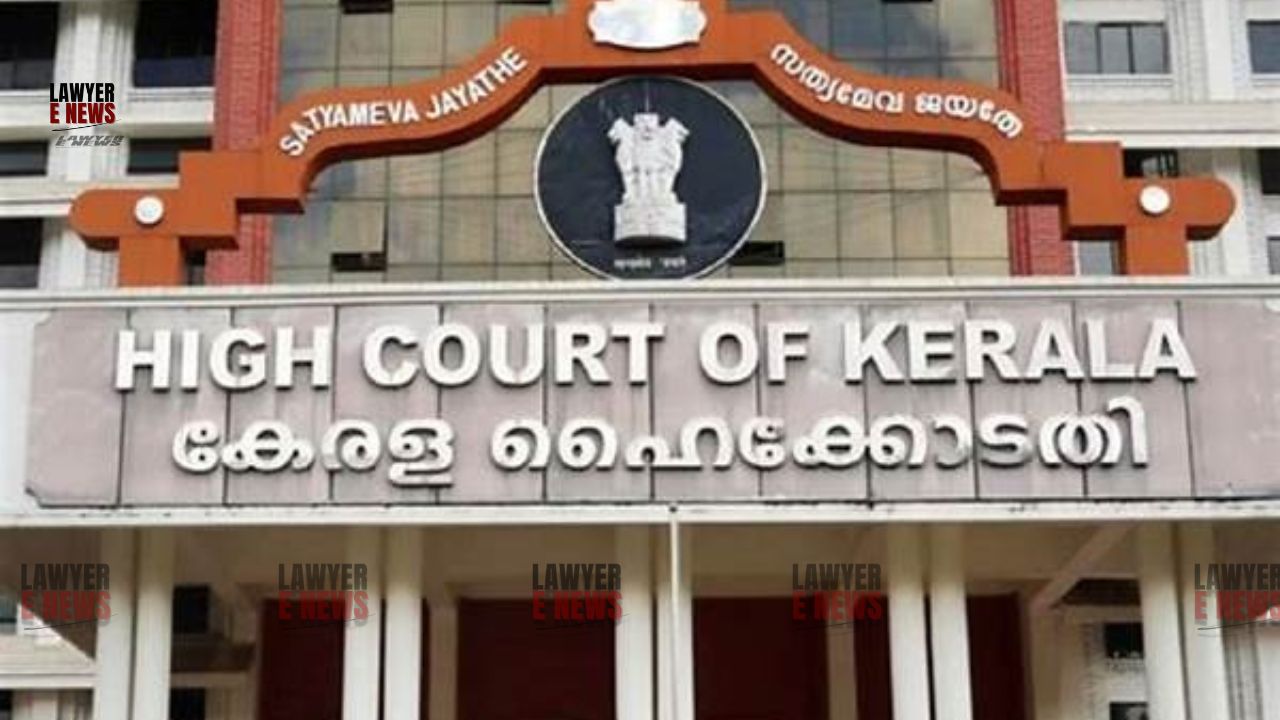-
by Admin
15 February 2026 5:01 PM



Liberty Under Article 21 Overrides Statutory Embargo When Trial is Delayed - Kerala High Court, in a landmark ruling, granted bail to an accused under the Narcotic Drugs and Psychotropic Substances Act, 1985 (NDPS Act) despite the stringent restrictions imposed by Section 37 of the NDPS Act. The Court observed that the right to a speedy trial is a fundamental right under Article 21 of the Constitution, and when trial delays are attributable to the prosecution, statutory bail restrictions must yield.
Justice P.V. Kunhikrishnan, while allowing bail, held: "Failure to conclude the trial within a reasonable time, resulting in prolonged incarceration of undertrial prisoners, violates the fundamental right guaranteed under Article 21 of the Constitution. In such cases, liberty will override the statutory embargo under Section 37 of the NDPS Act."
The petitioner, Sameer H., the third accused in Crime No. 1000/2023, had been in custody for one year and six months for allegedly purchasing 165.9 kg of ganja. The Sessions Court report confirmed that trial completion would take at least another six months.
Citing Supreme Court precedents, the High Court emphasized that when trial delays are solely attributable to the prosecution, courts must relax the stringent bail provisions under the NDPS Act to prevent an unjust deprivation of personal liberty.
"Bail is the Rule, Jail is the Exception – Kerala HC Cautions Against Mechanical Denial of Bail"
Reaffirming the fundamental principles of bail jurisprudence, the Kerala High Court underscored that bail should not be withheld as a form of pre-trial punishment. The Court cited the Supreme Court's ruling in P. Chidambaram v. Directorate of Enforcement (2019) and Jalaluddin Khan v. Union of India (2024), which held:
"Even in cases where stringent conditions for bail exist, once an accused meets the statutory requirements, bail cannot be arbitrarily denied. If courts start denying bail in deserving cases, it will amount to a violation of the rights guaranteed under Article 21 of the Constitution."
Justice Kunhikrishnan cautioned against a mechanical approach to bail under special statutes like the NDPS Act, stating that:
"Bail is the rule, and jail is the exception. Courts must not withhold bail as a punishment. If statutory conditions are met, bail must follow. Denying bail in deserving cases adds to judicial backlog and unjustly prolongs incarceration."
In Manish Sisodia v. Directorate of Enforcement (2024), the Supreme Court had noted that courts must recognize that bail is a right unless valid reasons exist to deny it. The Kerala High Court applied this principle to NDPS cases, emphasizing that stringent bail conditions should not result in routine and unjustified pre-trial detention.
"Statutory Restrictions on Bail Under NDPS Act Can Be Relaxed If Trial Delay is Solely Due to Prosecution"
The prosecution had opposed the bail application, arguing that Section 37 of the NDPS Act imposes strict conditions on granting bail for offenses involving commercial quantities of narcotics. However, the Court found that the delay in trial was entirely due to the prosecution’s failure to expedite proceedings.
Relying on its earlier decision in Shuaib A.S. v. State of Kerala (2024), the Court held: "Where trial delay is due to prosecution's laches, prolonged incarceration without trial cannot be justified. In such cases, the fundamental right to personal liberty under Article 21 must override statutory restrictions on bail."
The Court clarified that in cases involving commercial quantities of contraband, prolonged detention beyond a reasonable period, where the accused is not responsible for the delay, justifies bail despite the statutory restrictions under Section 37 of the NDPS Act.
"If an accused remains in custody for an unreasonably long period due to prosecution delays, courts must intervene to uphold the constitutional right to liberty. A rigid application of Section 37 of the NDPS Act would lead to manifest injustice," the Court emphasized.
The High Court thus concluded that the embargo under Section 37 must be relaxed in this case, as the trial was likely to remain pending for another six months, and the accused had already undergone one and a half years of incarceration.
"Bail Granted With Strict Conditions to Prevent Witness Tampering and Ensure Trial Participation"
While granting bail, the Kerala High Court imposed strict conditions to ensure that the accused does not interfere with the trial process. The bail conditions included:
Execution of a bond for ₹50,000 with two solvent sureties.
Mandatory appearance before the Investigating Officer whenever required.
Prohibition on leaving India without court permission.
Restriction on committing similar offenses.
Prosecution's right to seek bail cancellation if conditions are violated.
"The petitioner shall not, directly or indirectly, induce, threaten, or promise any witness in a manner that dissuades them from disclosing facts before the court," the Court directed.
Justice Kunhikrishnan concluded by reiterating that while bail is a fundamental right, the courts must balance the accused’s liberty with the need to protect the integrity of the trial.
"Bail Order Reaffirms Constitutional Mandate Against Arbitrary Detention"
By granting bail to the accused despite the stringent provisions of the NDPS Act, the Kerala High Court reaffirmed:
The right to a speedy trial is part of Article 21 of the Constitution.
If trial delays are caused by the prosecution, courts must prioritize personal liberty over statutory restrictions.
Bail should not be refused mechanically under special laws.
Bail is the rule, and jail is the exception—courts must uphold this principle in spirit.
This ruling strengthens the constitutional safeguards against prolonged pre-trial incarceration, ensuring that bail jurisprudence remains fair, reasonable, and rooted in personal liberty.
Date of Decision: February 3, 2025
